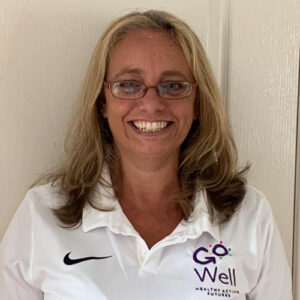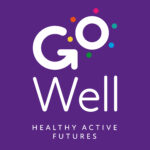Ever wondered why some of us are so passionate about the power of a subject like PE? Physical Education, School Sport and Physical Activity can be key in unlocking potential, not just for the elite athletes and top performers, but for every child. School PE lessons and the school sport offer are no longer about aiming to develop an exceptional performer; instead they encompass so much more! Let’s see what PE, School Sport and Physical Activity can do for our future generations….
H
Healthy habits
PE, Physical Activity and sport all embed healthy habits, not just in terms of taking more exercise – we all know that we need to move more, to keep our joints healthy, to maintain a healthy weight etc; the recent Active 30 campaign is helping to reinforce this message in Primary schools; but they also all have a huge impact on other areas of our life too. Habits such as deploying strategies to cope with stress and anxiety, co-operating with others, building meaningful relationships with others, learning to win and lose, knowing how to cope with setbacks but also how to use these as a catalyst for ambition, hard work, striving for success, acknowledging that instant gratification is often short-lived happiness and not always as rewarding as knowing you have worked hard for something. These things help to develop strong, resilient and well-rounded personalities. Isn’t that the kind of adult we want our children to grow into?
E
Emotions
Exercise is a great way to clear your mind, to gain some perspective, to release your frustrations; it allows us to self regulate, to refocus and gain some clarity, setting us up for whatever challenges lay ahead. Understanding our emotions and finding ways to recognise them, embrace them and choose to express them appropriately is something that can be and should be taught. Movement is integral to human expression.
A
Attainment
Following vigorous exercise your brain is more open to learning, meaning that if children were to do a quick 10 minute blast of exercise before their English or maths lesson their brain would be more open to being challenged, would potentially retain more information and problem solve more effectively. Shouldn’t we be in the business of maximising learning potential?
Attention span
PE and sport require us to sharpen our attention, to look for detail, to make quick thinking decisions, respond to stimuli. These skills lead to actively involved, confident, connected, lifelong learners. Analysis and decision making allows us to see things from different points of view, to identify key influences and to select appropriate responses, empowering our decision making in future.
R
Risks
PE and competitive sport can very easily help children to understand sequencing of time, the importance of quick reactions, of how decisions made in an instant, can influence the outcome of a whole game, potentially having huge ramifications on the bigger picture. Taking risks, being daring are key life skills that allow us to have adventures, to aim high, to challenge ourselves, to have self belief, to be able to overcome challenges, to work/sit outside of our comfort zone every now and then and be ok with that. Resilience is a big word – self regulation, being able to react to situations in a measured and calm manner requires a certain equilibrium. Sport teaches children to win and to lose, to support and celebrate the success of others but it also has the opportunity to develop ambition, drive, a try and try again attitude, an acceptance of limitations but an adaptability to goal set and to achieve.
T
Tiredness
We know that sleep is a great healer and medicine. Whilst the National Sleep Foundation gives us recommendations about how much sleep we need according to age, they also recognise that this will vary according to how active we are and suggest that the more active you are the more sleep you may need. We know that people are leading far more sedentary working lives and that they are mentally exhausted, but switching minds off isn’t always easy. I refer you back to all of the things previously raised – physical activity has the tendency to tire you out, allowing you to clear your mind and therefore settle your thoughts, which in turn can lead to more restful sleep.
How powerful is all of that? I could go on and on and on……….
Plato said “lack of activity destroys the good condition of every human being, while movement and methodical physical exercise saves it and preserves it”.
Wouldn’t it be fantastic if it was at the HEART of our school curriculums and in the hearts of our children?
Further reading:
How Much Sleep Do We Really Need? – Sleep Foundation
We hope you found this blog helpful. For more information contact sarahwalmsley@go-well.org.


